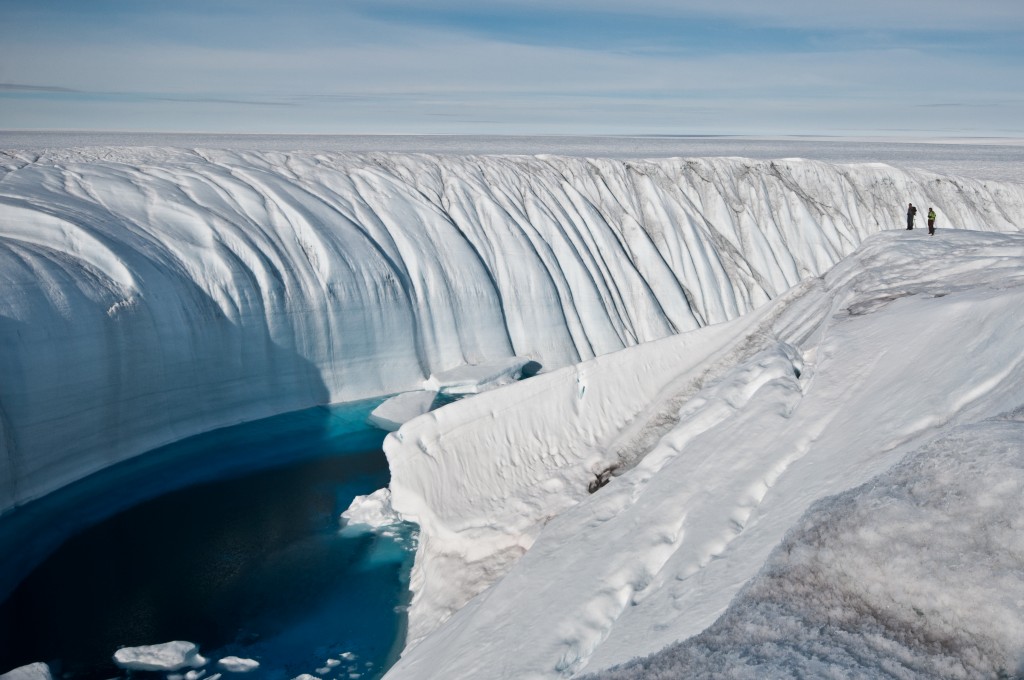Stop flying over the North Pole! (Exception: Reindeer-drawn sleighs)

Greenland melt stream photographed by Ian Joughin, a glaciologist in the University of Washington’s Applied Physics Laboratory
I have written a lot about the melting Arctic ice on the Ice Blog. This spectacular photo shows a channel carved into the Greenland ice sheet by melt water. It was taken by Ian Joughlin from the University of Washington, co-author of the study on melting polar ice (see Ice Blog post from 30.11.12) and lead author of an article on factors that cause ice sheets to lose mass. It goes without saying (almost) that we need to reduce emissions to halt the process. (Come on Doha negotiators). A new study has come up with an additional suggestion. Atmospheric scientist Mark Jacobsen and his colleagues suggest airlines could help slow Arctic melting by stopping international flights from crossing over the Arctic circle. The paper, published in Climatic Change, says these flights are a a surprisingly large source of black carbon pollution in the region. While the cross polar flights are very small in terms of greenhouse-gas emissions, they are a significant source of pollution, especially black carbon, which absorb sunlight and warm the region. The pollutants tend to stay in the Arctic for longer than they do elsewhere. One reason is the planes fly through the stratosphere, a relatively stable layer of the atmosphere.
The study looked at whether re-routing flights to circumnavigate the Arctic Circle could reduce warming. The authors say it could reduce both black carbon and fuel consumption.
So while the world’s top politicians wrangle over a climate agreement in Doha (then fly home – some of them across the North Pole?) – here we have another practical suggestion of ways to reduce Arctic melting. It would only be a tiny contribution – but – as an old Scots saying goes – “many mickles make a muckle”. Slow progress at the UN talks doesn’t mean there is nothing we can do in the meantime.
More on the study in Climatic Change
And read also Brad Plumer on the Washington Post website















